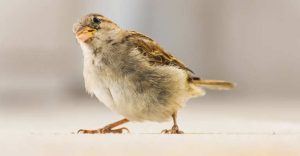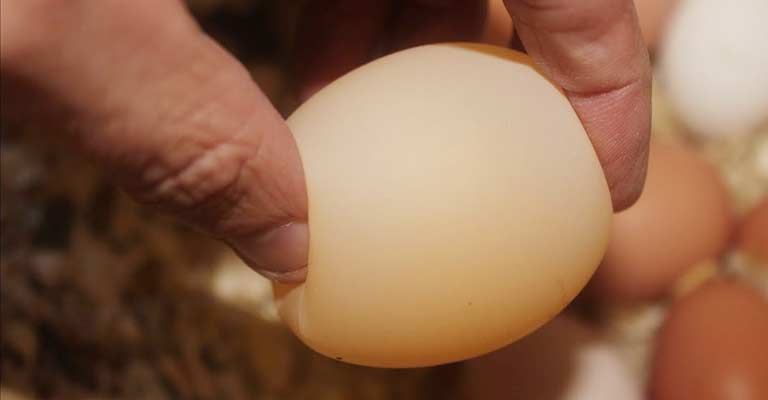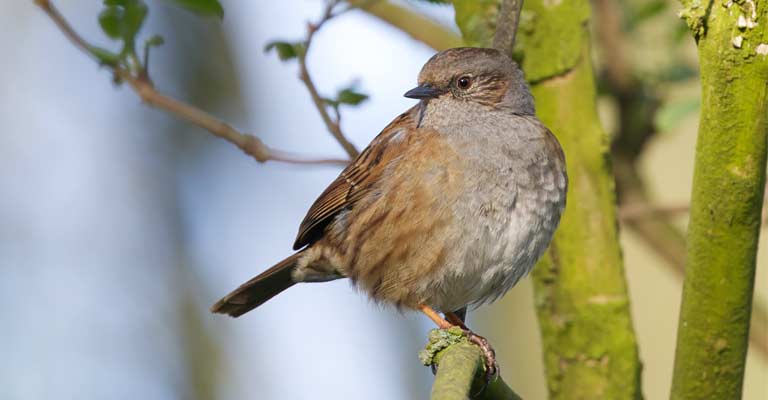Maintaining optimal health in our avian companions involves a keen understanding of potential imbalances, such as low blood calcium levels.
Calcium is a critical element for various physiological functions in birds, and its deficiency can manifest in distinct signs.
Recognizing these signs is pivotal for bird owners and caregivers to ensure timely intervention and the well-being of their feathered friends.
In this exploration, we delve into the nuances of the signs indicating low blood calcium levels in birds, shedding light on the importance of vigilant observation and proactive measures for avian health.

Signs Of Low Blood Calcium Levels In Birds
Maintaining optimal calcium levels is crucial for the well-being of avian companions. Birds, with their unique physiology, can exhibit specific signs when facing low blood calcium levels, a condition known as hypocalcemia.
Here are seven possible signs indicative of low blood calcium levels in birds.
Muscle Tremors and Twitching

Birds with low blood calcium levels may experience muscle tremors and twitching. Calcium plays a vital role in muscle function, and its deficiency can lead to involuntary movements. Observing these signs prompts the need for a thorough avian veterinary evaluation.
Weakness and Lethargy

Low calcium levels can contribute to weakness and lethargy in birds. A decrease in calcium affects nerve transmission and muscle contraction, resulting in a lack of energy and overall lethargic behavior.
Difficulty in Standing or Walking

Birds with hypocalcemia may find it challenging to stand or walk. Calcium is essential for bone health and muscle coordination, and its deficiency can impact the bird’s ability to support its weight and move effectively.
Egg-Laying Issues

Female birds, especially those who lay eggs frequently, are prone to calcium depletion. Low blood calcium levels can lead to egg-laying difficulties, including soft-shelled or malformed eggs. Proper calcium supplementation is crucial for reproductive health.
Seizures or Convulsions

Seizures or convulsions can occur in birds with severe hypocalcemia. Calcium is vital for maintaining the electrical balance in the nervous system, and its shortage can lead to abnormal neural activity.
Reduced Appetite

Birds experiencing low blood calcium levels may exhibit a reduced appetite. Calcium deficiency can impact the digestive process, affecting the bird’s interest in food. Ensuring a well-balanced diet with adequate calcium is crucial for avian health.
Respiratory Distress

Calcium is involved in the contraction of respiratory muscles, and low levels can lead to respiratory distress. Birds may exhibit difficulty breathing or rapid, shallow breaths, emphasizing the importance of addressing calcium imbalances promptly.
What Are Some Symptoms Of Low Blood Calcium Levels In Birds?

Maintaining proper calcium levels is crucial for the health of our avian companions. Low blood calcium levels, or hypocalcemia, can manifest through various symptoms that require prompt attention.
Here are some symptoms indicative of low blood calcium levels in birds:
Muscle Tremors and Twitching
One of the earliest signs of low blood calcium levels in birds is muscle tremors and twitching. Calcium plays a pivotal role in muscle contraction and nerve function.
Birds experiencing hypocalcemia may display involuntary movements, signaling the need for immediate veterinary evaluation and calcium supplementation.
Weakness and Lethargy
Low blood calcium levels can lead to weakness and lethargy in birds. The deficiency impacts the muscles and nerves, causing a lack of energy and overall weakness.
Observing changes in the bird’s activity level and responsiveness is crucial for early intervention.
Difficulty in Standing or Walking
Birds with hypocalcemia may struggle to stand or walk. Calcium is essential for bone health and muscle coordination. A bird experiencing difficulty in supporting its weight or displaying an unsteady gait may be showing signs of low blood calcium levels.
Egg-Laying Abnormalities

Female birds, especially those prone to frequent egg-laying, are susceptible to calcium depletion. Low blood calcium levels can lead to egg-laying issues, such as soft-shelled or misshapen eggs.
Proper dietary calcium supplementation is vital to prevent reproductive complications.
Seizures or Convulsions
Seizures or convulsions can occur in birds with severe hypocalcemia. Calcium is crucial for maintaining the electrical balance in the nervous system, and its deficiency can lead to abnormal neural activity. Immediate veterinary attention is necessary to address this critical symptom.
Reduced Appetite
Birds experiencing low blood calcium levels may exhibit a reduced appetite. Calcium deficiency can impact the digestive process, leading to a lack of interest in food. Providing a well-balanced diet with sufficient calcium content is essential for avian health.
Respiratory Distress
Calcium is involved in the contraction of respiratory muscles, and low levels can lead to respiratory distress. Birds may show signs of difficulty breathing or rapid, shallow breaths. Addressing calcium imbalances promptly is crucial to ensure proper respiratory function.
What Are The Treatments For Low Blood Calcium Levels In Birds?

Low blood calcium levels, or hypocalcemia, can pose a significant threat to the health of our avian companions. Recognizing the symptoms and seeking timely intervention is crucial.
Here are seven treatments aimed at addressing low blood calcium levels in birds:
Calcium Supplements
The primary treatment for hypocalcemia involves calcium supplementation. Veterinarians may prescribe calcium supplements in the form of oral medications, injections, or dietary adjustments.
Ensuring the bird receives the appropriate amount of calcium is vital for restoring normal blood calcium levels.
Balanced Diet
A well-balanced diet is fundamental in preventing and treating low blood calcium levels. Bird owners should provide a nutritionally sound diet that includes foods rich in calcium, such as dark leafy greens, fortified seeds, and calcium-rich pellets. This dietary approach supports long-term calcium maintenance.
UV Light Exposure
Adequate exposure to natural sunlight or full-spectrum UV lighting is crucial for calcium metabolism in birds. Sunlight stimulates vitamin D synthesis, which is essential for calcium absorption.
Encouraging outdoor exposure or providing UV lighting helps maintain optimal calcium levels.
Limiting Phosphorus Intake
Excessive phosphorus intake can interfere with calcium absorption. Birds on a high-phosphorus diet may experience calcium imbalances. Adjusting the diet to limit phosphorus-rich foods supports better calcium utilization in the body.
Monitoring Hormonal Influences
In female birds prone to egg-laying, hormonal fluctuations can contribute to calcium depletion. Monitoring and managing hormonal influences, especially during breeding seasons, are crucial.
Veterinarians may recommend hormone therapy to prevent excessive calcium loss during egg production.
Fluid Therapy
In severe cases of hypocalcemia, especially when dehydration is a concern, veterinarians may administer calcium through intravenous or subcutaneous fluid therapy.
This approach ensures a rapid increase in calcium levels, addressing acute symptoms.
Regular Veterinary Check-ups
Regular veterinary check-ups are essential for birds with a history of hypocalcemia or those prone to calcium imbalances. Monitoring blood calcium levels, adjusting treatment plans as needed, and identifying potential issues early contribute to long-term management and prevention.
Implementing a combination of these treatments, tailored to the specific needs of the bird, is crucial for effectively addressing low blood calcium levels.
Collaborating closely with a qualified avian veterinarian ensures a comprehensive approach to treatment, contributing to the overall health and well-being of our feathered companions.
FAQs
How can I address low blood calcium levels in my bird?
Treatment involves calcium supplementation, a balanced diet rich in calcium, UV light exposure, limiting phosphorus intake, monitoring hormonal influences, and regular veterinary check-ups for tailored management.
Is reduced appetite a common sign of low blood calcium levels?
Yes, birds with low blood calcium levels often exhibit a reduced appetite due to the impact on the digestive process. Providing a well-balanced diet is crucial for Avian’s health.
Can muscle tremors and weakness indicate low blood calcium levels?
Muscle tremors and weakness are common early signs of low blood calcium levels. These indicate a deficiency impacting muscle function and nerve coordination.
How can egg-laying issues be related to low blood calcium levels?
Female birds, especially frequent egg layers, are prone to calcium depletion. Low blood calcium levels can lead to egg-laying difficulties, such as soft-shelled or misshapen eggs.
Why is respiratory distress a symptom of low blood calcium levels?
Calcium is crucial for respiratory muscle function. Birds with low blood calcium levels may exhibit respiratory distress, emphasizing the importance of addressing imbalances promptly.
Conclusion
In the intricate world of avian health, recognizing and addressing the signs of low blood calcium levels emerge as crucial steps toward ensuring the vitality of our feathered companions.
From muscle tremors and weakness to respiratory distress, these signs underscore the significance of calcium in avian well-being.
Timely intervention, through calcium supplementation, dietary adjustments, and veterinary care, plays a pivotal role in restoring balance.
By staying attuned to these signs and embracing preventive measures, bird owners contribute to the overall health and longevity of their avian companions, fostering a harmonious and thriving bond with their feathered friends.